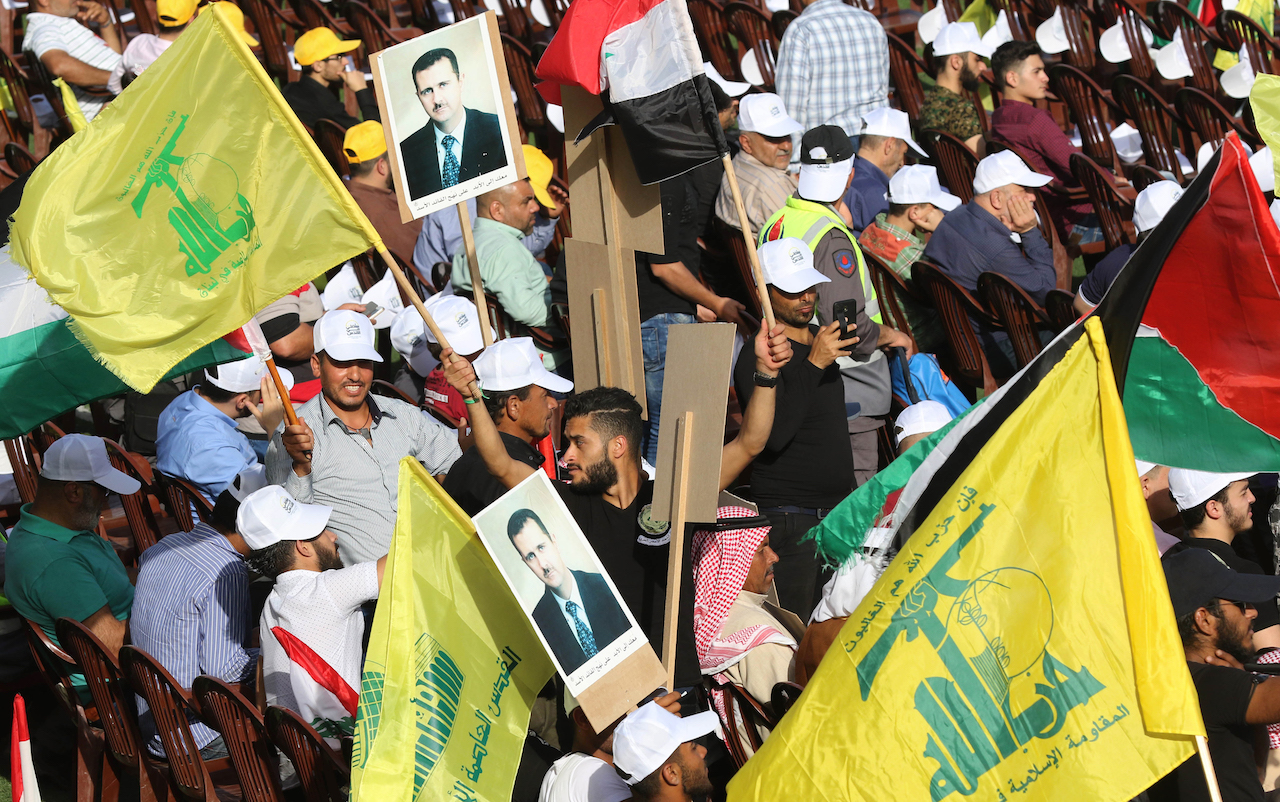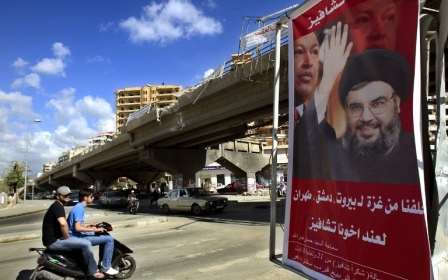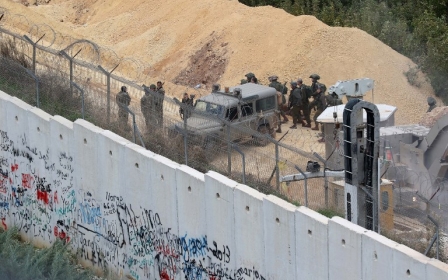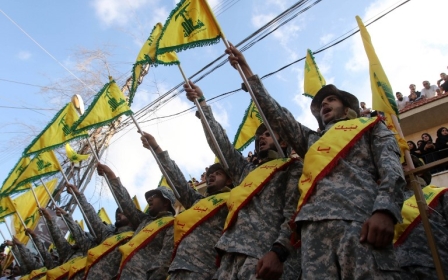UK to ban Hezbollah over attempts to 'destabilise' Middle East
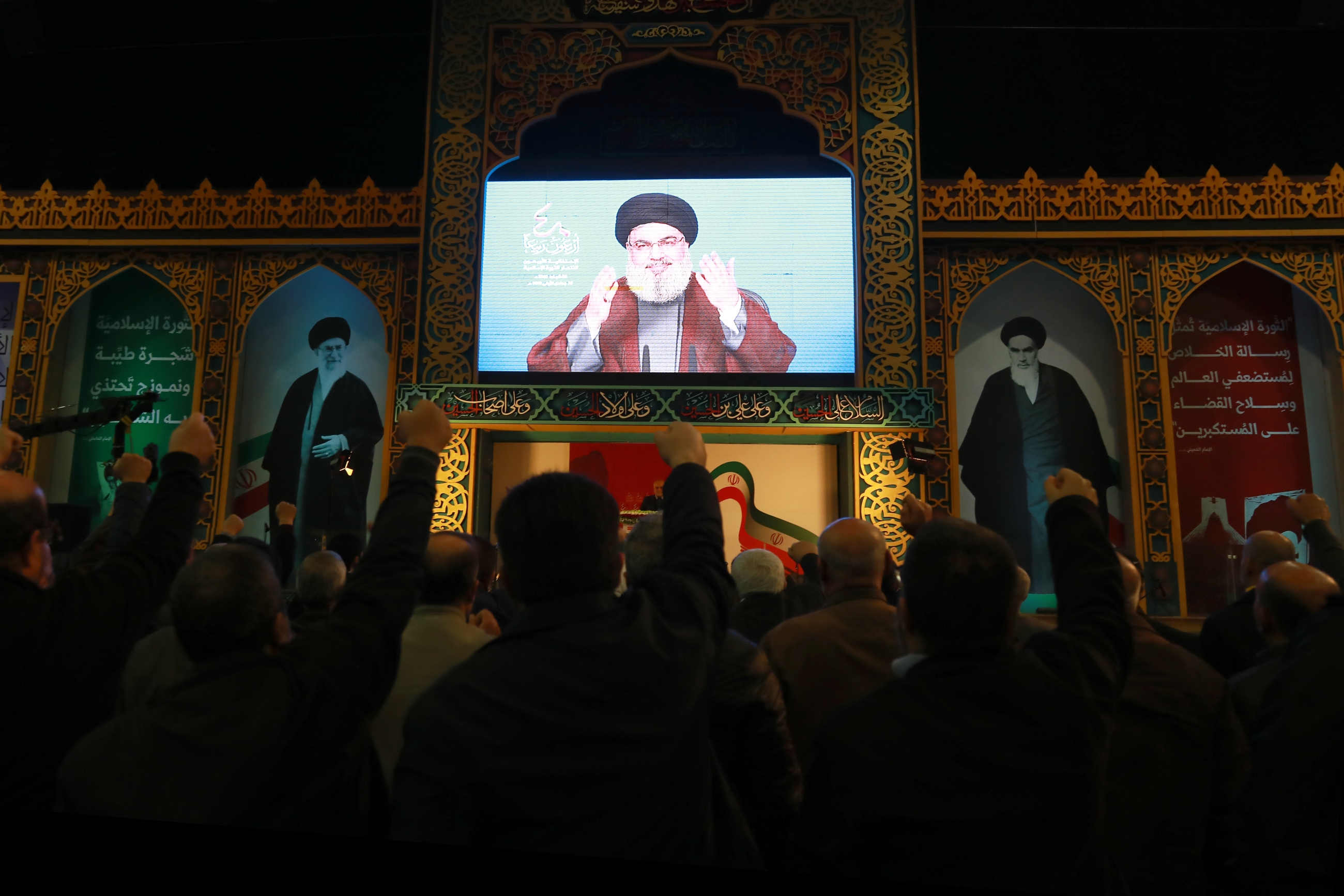
Britain said on Monday it would ban Hezbollah, adding the Lebanese Shia group in its entirety to its list of banned terrorist organisations.
Hezbollah's armed wings, the External Security Organisation and the Jihad Council military wings were already banned in 2001 and 2008 respectively.
Home Secretary Sajid Javid said in a statement on Monday that it was no longer tenable, however, to maintain that there was a distinction between the political and military sides of the group.
"Hezbollah is continuing in its attempts to destabilise the fragile situation in the Middle East – and we are no longer able to distinguish between their already banned military wing and the political party," Javid said.
"Because of this, I have taken the decision to proscribe the group in its entirety."
New MEE newsletter: Jerusalem Dispatch
Sign up to get the latest insights and analysis on Israel-Palestine, alongside Turkey Unpacked and other MEE newsletters
The government also announced it would be banning two Sahel-based militant groups, Ansaroul Islam and Jamaat Nusrat al-Islam Wal-Muslimin, and several front groups for the Turkish Revolutionary Peoples’ Liberation Party/Front (DHKP-C) and the Islamic State group.
Israel applauded the UK for the move against Hezbollah, and called on the EU to adopt the same position.
"All who truly wish to combat terror must reject the fake distinction between 'military' & 'political' wings," Israeli Security Minister Gilad Erdan said in a tweet, thanking his British counterpart, Sajid Javid.
'Hezbollah is a fixture in Lebanese politics and I think it will make it much harder for British embassy officials to try and be an effective positive force within Lebanon'
- Chris Doyle, Caabu
"Now is the time for the #EU to follow suit!"
Middle East Eye contacted Hezbollah, but a spokesperson said the group was not yet commenting on the issue.
Chris Doyle, director of the Council for Advancing Arab-British Relations, told MEE the move was risky in terms of engaging with UK attempts to engage with Lebanese political and civil society.
"Will it produce credible benefits to the UK, will it help us in terms of security and the like - I think that actually on the ground in Lebanon it will make life much harder," he said.
"Hezbollah is a fixture in Lebanese politics and I think it will make it much harder for British embassy officials to try and be an effective positive force within Lebanon."
'Violation of sovereignty'
The Iran-backed group is already regarded a terrorist organisation by the United States, which last week expressed concern about its growing role in Lebanon's government - a move that Hezbollah politicians described as a "violation of sovereignty".
Set up in 1982 by Iran's Revolutionary Guards following Israel's invasion of Lebanon, it fought its southern neighbour to a standstill in 2006.
The British ban, which will come into force on Friday subject to parliament's approval, means anyone who is a member of Hezbollah or "invites support" could potentially face 10 years in jail.
In a statement released on Monday, the UK accused Hezbollah of continuing to "amass weapons in direct contravention of UN Security Council resolutions".
The government also highlighted the support given by the group to the government of Bashar al-Assad in fighting rebel groups since 2012.
Hezbollah currently controls three out of 30 ministries in Lebanon's government, the largest number it has ever held, following months of negotiations.
The leader of the opposition in the UK, Jeremy Corbyn, has previously been criticised by the Conservative government for a meeting in 2009 in which he referred to Hezbollah and the Palestinian group Hamas as "friends".
He has defended his comments arguing that he used it in the collective sense and that the group were important for the Middle East peace process.
"There is not going to be a peace process unless there is talks involving Israel, Hezbollah and Hamas and I think everyone knows that," he said in 2015, according to the Jewish Chronicle.
One major recurring issue has been the annual Quds Day marches in London, a pro-Palestinian demonstration originally started in Iran and organised by the Islamic Human Rights Commission.
The march regularly features the flag of Hezbollah and has been heavily criticised by London mayor Sadiq Khan.
On Monday, Khan tweeted his approval of the Hezbollah ban, and the impact it would have on the Quds Day march.
"Anti-Semitism and hate crime has no place in our city. I've raised my deep concerns about the support shown for Hezbollah at the annual Al Quds march in London on a number of occasions - and the fact the Home Secretary has finally listened and is taking action is welcome," he wrote.
Chris Doyle said that there seemed to be an aspect of the new legislation designed primarily at domestic consumption, but said that the defence of Hezbollah by some groups in the UK had been largely unhelpful.
“There is a segment of British society, a small one, who like to go out and carry Hezbollah flags and imagine somehow they’re some force for good and I don’t think that’s helpful, in fact I think it’s been extremely counter-productive," he said.
“But then, driving it underground - I’m not sure how much that achieves."
Middle East Eye delivers independent and unrivalled coverage and analysis of the Middle East, North Africa and beyond. To learn more about republishing this content and the associated fees, please fill out this form. More about MEE can be found here.


